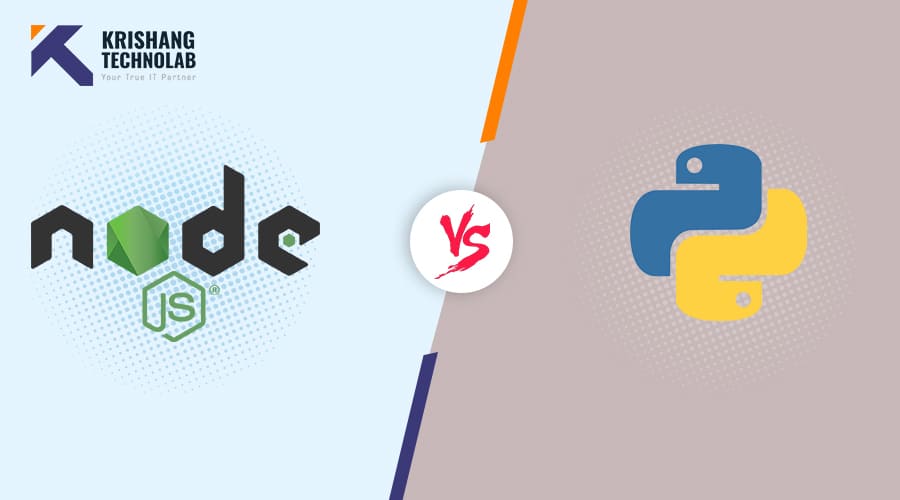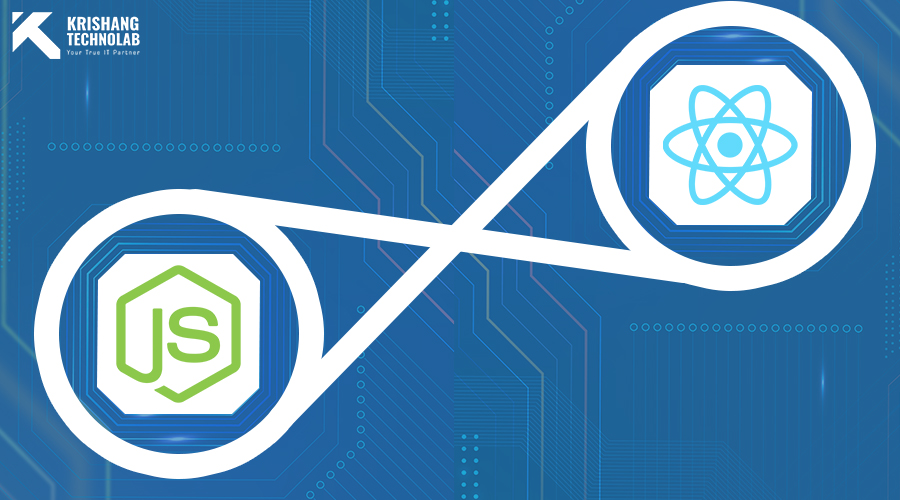Quick Overview: In this blog, we dive into Node.js, one of the most powerful and widely used server-side JavaScript platforms. You’ll explore its key features, top frameworks, pros and cons, scalability, cross-platform compatibility, and performance through a detailed Node.js guide.
If you are aware of the technicalities and know-how the technical world, you must have at least once heard of Node.Js. In the past few years, Node.Js has taken off as a server-side platform and has become one of the richest platforms for developing web applications, APIs, and micro services.
Node.js has earned its share of recognition and popularity in the past few years, and it only keeps increasing with time.
If you wish to gather all the facts and information about Node.js to develop an upcoming project with Node.js, this blog will give you much clarity.
We will go deep into the technicalities of Node.js and bring it up all to you. So, stay with us and keep reading. To understand nodejs better, let us first relearn what is nodejs is all about.
What is Nodejs?
NodeJS is an open-source, cross-platform runtime environment developed in 2009 by Ryan Dahl. It works on JavaScript code server-side and is built on Chrome’s V8 JavaScript engine. Node.js is commonly preferred among businesses and developers to develop highly performant and data-intensive web applications. It can be downloaded for free today.
Why is there a significant increase in the use of Nodejs?
Nodejs popularity is increasing every day, and there are several reasons owing to that. Not only is Node.JS event-based, but it also operates on a non-blocking event loop. In simple words, this means that businesses can use nodejs to develop fast and scalable network applications.
Moreover, nodejs has a huge number of libraries which makes it an ideal choice for developing a huge range of applications from different industries. On top of that, the developers have the flexibility to choose from a thousand free npm (Node Package Manager) modules. The developers can incorporate these modules into your projects and adds to the overall functionality.
There are several other features and functions of nodejs that make it a stunning framework, but we will come to that in the next sections of the blog. For now, let’s jump to the next section, where we discuss the top Nodejs framework that you can consider for your next project. So, let us get going.
Which are the top Node.js frameworks for web app development?
A Nodejs framework is an open-source library that provides multiple features and functions to create custom modules that can be used in any Node.JS project. Frameworks ensure consistency across the project and speed up the project development.
Node has a large number of frameworks to choose from. We will walk you through some of the best Node.JS frameworks that you can consider choosing for your next project.
> Express framework
This is one of the most common Node.js frameworks. Its lightweight code structure is great for building APIs, web applications, and microservers. Moreover, Express is popular because it works seamlessly with Node.JS’s modules and has in-store a good number of plugins.
> Koa
Koa was created by the same team as Express, but it is more performant. Koa is known for being an ideal choice for building APIs, web applications, and microservers. Kora also uses generators which makes it highly efficient with asynchronous code, as compared to Express.
> Hapi
This is another Node Js framework that specifically designs large applications and is used at an enterprise level by many known companies. Hapi has a toolkit for building APIs and web servers which includes several authentication tools and monitoring capabilities.
> Sails
Sails framework resembles the MVC architecture frameworks like Ruby on Rails and provides support for modernized and data-oriented development. Sails framework is compatible with all the databases and is flexible in integrating JavaScript frameworks.
> Nest
With its comprehensive libraries, this progressive Node Js framework can create dynamic, scalable enterprise-grade apps while still providing total flexibility. Due to Node Js support for extensive library usage, you can utilize this framework to create multilayered business applications.
What are the key features of Nodejs?
Now, we will discuss the core of this blog and the features of Node Js. So, fasten your seatbelt and explore Node Js features with us. Ready to go?
1. Single-threaded
Node Js operates on a single thread and is based on single-thread event loop model architecture. This architecture enables handling multiple client requests.
A single thread executes the main event loop, but the input and output work in the background is performed on separate threads. The event loop also allows the Node Js to perform multiple non-blocking operations.
2. Asynchronous
Do you know Node Js is asynchronous? We know this term is difficult to pronounce, but well, we will tell you what it exactly is. Being asynchronous means that it operates in a non-blocking way.
This further means that whenever a client requests a server, a single thread handles the request and ensures if the request involves any database interaction. If there is no database interaction, then the request gets processed, and the server sends the response to the client.
3. Cross-platform compatibility
Node Js is compatible with multiple platforms such as Windows, Unix, Linux, macOS, and mobile platforms. A large number of Node Js communities write Node Js on OSX and deploy it on Linux servers.
Cross-platform compatibility is one of the well-known features of Node Js. There’s no need to write different codes as a single code runs on multiple platforms.
4. Scalability
Node Js addresses one of the most severe issues in software development- scalability. As most organizations demand scalability in their apps, Node Js takes care of it like a pro.
Additionally, Node Js can handle concurrent requests together. Thus, with Node Js there will be no problems with scaling the applications horizontally across multiple servers.
5. Caching
Node Js holds a good advantage in caching. Node Js supports the caching of modules. Without a cache, the server application will have to execute the whole code and retrieve information from the database.
A cache is a memory that stores the information during the time. With cache, the server application returns the information from memory instead of executing the code to process requests.
6. No buffering
Due to the call-back function concept, the Node Js application output the data in blocks. With the no buffering feature, the users receive the data more easily and do not require to wait for the whole operation to complete.
Moreover, when there’s no buffering, the overall time needed for processing also decreases. For instance, while uploading audio and video files on Node.js, the data doesn’t buffer.
7. Uses JavaScript
In Node Js, JavaScript is everywhere. JavaScript, as everyone knows is one of the most popular programming languages today. Furthermore, as most of the developers are familiar with JavaScript, thanks to its popularity, it’s easier to find a developer for this platform.
Lastly, a designer who is familiar with JavaScript will find working Node Js much easier than other similar frameworks.
You Can Find Out More About : AngularJS vs NodeJS vs ReactJS – Which one should you choose?
In this blog, we will focus on the three frameworks in detail. We aim to help you choose the right JavaScript framework for your next web app development project from these three.
Here are some of the pros and cons of using Node Js for Node Js development services.
After going through Node Js features, we will take you through the pros and cons of the Node Js framework. This will help you know about NodeJS web development services in depth.
Let’s have a look at the pros of Node.js
- High-performance real-time applications
- Seamless scalability for building modern applications
- Node.js is cost-effective
- Solid community support
- Node.js is easy to learn
- Improved app response time and boosted performance
- Node.js reduces the time to market applications
- Reduces loading time with quick caching
- Helps in building cross-platform applications
Here are a few cons of Node.js
- Heavy computing tasks result in reduced performance
- The asynchronous programming model makes it difficult to maintain code
- Lack of library support can endanger the code
- Node.js is in high demand, but there are few experienced developers.
Final words
Node.js is known for playing a stellar role in developing scalable and high-performing web apps. Its increasing popularity and top-notch performance have made it the most suitable framework for web app development in 2022. If you have an amazing project in mind, getting in touch with expert Node.js developers is the next step for you. Once you have the right team with you, the app development journey ahead will be a smooth one.
Are you looking for Node.js developers for your project?
Suppose you are convinced of the amazing features of React.JS and have decided to develop a web app using Node.js development services. In that case, you must hire NodeJS developers to help you with the best Node.js development solutions.
If you are beginning your search for Node.js programmers soon, you can reach out to our Node.js experts at Krishang Technolab and discuss your project requirements with them. We will bring our development experience and expertise to the table, and our dedicated NodeJS developers will begin the development with the best technologies in hand.
We hope this detailed blog helped you learn more about the Node.js framework, its features, benefits, and popularity in-depth. If you still have any confusion, we are here to address them all.









